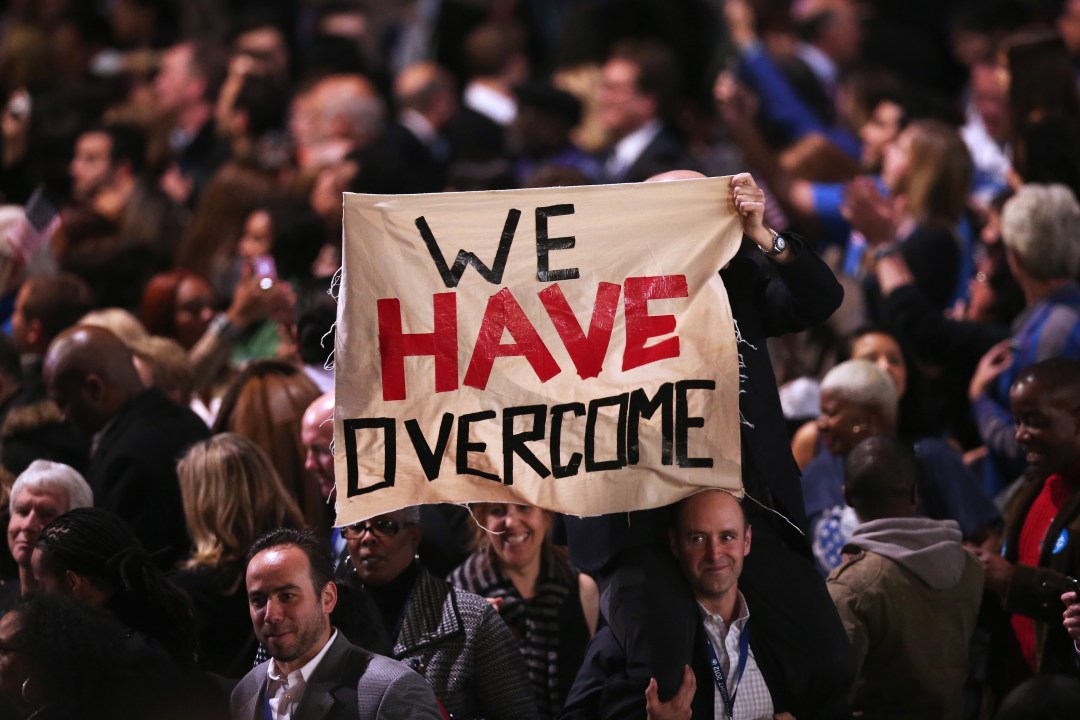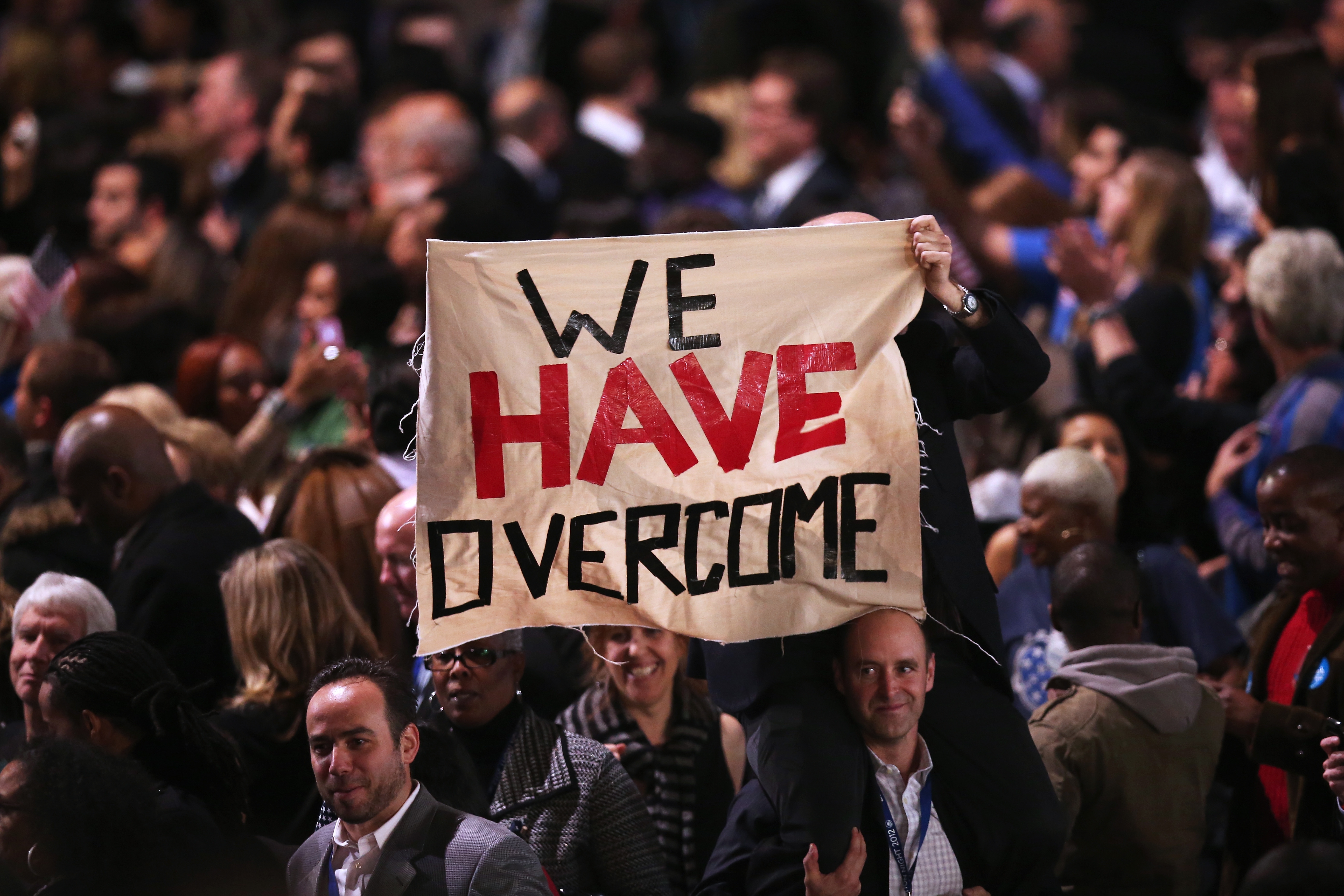Well, I was wrong. I thought Mitt Romney might do rather better than it seems he has. As I type this CNN has just called Ohio for Barack Obama, confirming that the President will be re-elected to serve a second term as President of the United States. It looks as though Nate Silver’s projections are off too: with Obama looking likely to win Virginia and Florida it seems as though the President will do better – at least in terms of the Electoral College – than even the much-criticised Mr Silver predicted.
Add a series of crushing blows to the GOP in Senate races from Massachusetts to Missouri and you have a dreadful night for the Republican party. This is worse than a defeat; it’s a calamity.
For Obama this is a historic night. In some respects this victory is a greater achievement than his triumph four years ago. That, in the sour dog days of the Bush presidency, was an obvious “change” election. America wanted a fresh start and Barack Hussein Obama was well-placed to be both a symbol of and catalyst for that change. Hope. A fresh start. All that jazz.
This election was different. This was not a change election. It was one won by sweat and effort, more perspiration than inspiration. Already it is plain that the Obama campaign’s ground game was vastly superior to Romney’s. The long months before the election officially began were well spent organising in places such as Cuyahoga County, Ohio and Miami-Dade County, Florida. Not just there either but in other places too, notably rural and semi-rural districts in Virginia and Ohio where Obama’s vote held up better than most pundits and number-crunchers had thought plausible.
Not many Presidents have managed to win a “change” election and a muscle election in which getting more of your team to the polls matters more than inspiring swing voters to plump for your guy. That’s an impressive double. The Obama people looked at, learned from and built upon George W Bush’s 2004 re-election campaign.
According to the exit polls it seems as though Romney actually won white voters by the same margin Ronald Reagan did in 1980. But a twenty point win amongst white voters is no longer enough for Republicans. This is no longer Ronald Reagan’s America. It is Barack Obama’s. In 1980 white voters constituted 88% of the electorate. This year they were just 73% of voters. On Fox News Bill O’Reilly whined that ‘the white establishment is now the minority’. He was closer to being right than he appreciated. America has changed.
Smart Republicans know this and knew it before this election too. Nevertheless, Romney’s campaign was built on one more heave and one last gamble that Republicans could win by relying on white votes to carry their candidate to the White House. That had worked in the past but as older, Republican-leaning voters died and were replaced on the electoral rolls by younger, Democratic-leaning voters the GOP’s margin for error in Presidential elections grew ever narrower.
Another thing we knew before tonight but that too many smart people preferred to ignore: the electorate that votes in Presidential elections is not the same as the electorate that troops to the polls for mid-term elections. 2010 was not a harbinger of some great Republican comeback. Not when everyone is paying attention, anyway.
Two things were apparent about this election 18 months ago: the economic data suggested the President should be vulnerable but the Republican party was finding it hard to select a credible, approachable, likable, compelling candidate of the type who might be best placed to defeat Obama. Romney was the best of a pretty poor lot.
That fact will be overlooked by at least some GOP pathologists but, nevertheless and once Rick Perry imploded, it was true then and remains true now. Romney did not lose this election because he was insufficiently conservative or unwilling to preach that good ol’ GOP religion like he really believed it. He lost because he failed to persuade sufficient numbers of middle-income middle-Americans that he was the kind of politician who appreciated their concerns, their fears and their aspirations. Empathy matters and it’s something that’s tough to fake.
That’s on Romney. But it’s also on a campaign that too often seemed to presume that the economy would do the heavy-lifting for Romney. It didn’t work like that. Romney spent a billion dollars and only took Indiana and North Carolina. With unemployment at or above 8 per cent for the year leading up to the election. Heckuva jobs, guys.
Too many Republicans presumed they were going to win this election because, well, they presumed they were going to win this election. The echo-chamber has its uses but it can lead campaigns to unfortunate places too. Obama won every significant battle that really mattered. At some point you have to think this was, at least in part, because Democrats enjoyed a significant organisational advantage. The black vote returned to vote. So did the latino vote. So did the youth vote. And so did the women. By god, the women were not impressed by Republicans this year.
Romney only won 30 per cent of hispanic votes and while it is true the GOP needs to “reach out” to hispanic voters it would probably be a mistake to think this was the most important element in Romney’s defeat. Immigration is important but it’s not as important as a credible economic message.
The 47 Per Cent Moment was so damaging because it confirmed many voters’ worst fears abour Romney and the GOP. They really ain’t that into you. Not unless you’re worth a million bucks. In Ohio, one in ten voters said they thought Obama’s policies favoured the rich but 56 per cent believed Romney’s views were tailored to what the rich might find palatable. You cannot win elections in Ohio or other parts of the midwest with numbers like that.
Speaking of Ohio: it’s hard not to wonder how the election might have played if Romney had picked Rob Portman to be his running-mate instead of Paul Ryan. Additional conservative enthusiasm in Texas or Oklahoma ain’t worth much without additional conservative enthusiasm in Ohio.
Romney brought this upon himself. Tax cuts for the wealthy are an odd way to appeal to ordinary Americans making ordinary salaries in ordinary towns for whom job security is a pressing issue, for whom the cost of health insurance is often a worry, for whom the cost of a college education is the generational matter of most concern. Romney did not do enough to reassure those voters he had their interests at heart. Is it any wonder many of them – or enough of them at any rate – concluded that he did not? Fix that and you go some way towards addressing the GOP’s problems with latino voters.
So tonight Republicans feel much as Democrats did in 2004. They came close but not close enough. This remains so even if Romney battles to a draw in the popular vote (or even wins it). He will have made up the ten million votes by which Obama beat McCain, but 2008 was an unusual election and one unusually suited to the particular skill-set Obama brought to the fray that year. It was a near-perfect storm for Obama, fought against the sour memory of George W Bush’s presidency. This was a different matter and thus, in some ways, this is the more impressive victory.
Republicans will win presidential elections again – they may well be favourites to prevail in 2016 – but, again, the difference now is that when all things are equal in a “normal” election Democrats have a slight but important advantage whereas 30 years ago it was Republicans who enjoyed that minor but significant supremacy. And when the country is evenly divided these small things matter.
Romney was never a great candidate but it would be a mistake for Republicans to assume he was their only or even biggest problem. The party’s post-mortem is unlikely to be pretty but it may yet prove instructive.
As for Obama: well, he has his second term and the achievements of his first term have been secured. Now he just has to figure out how to use his last four years in Washington. Good luck with that, Mr President. You’ll need that luck too.








Comments